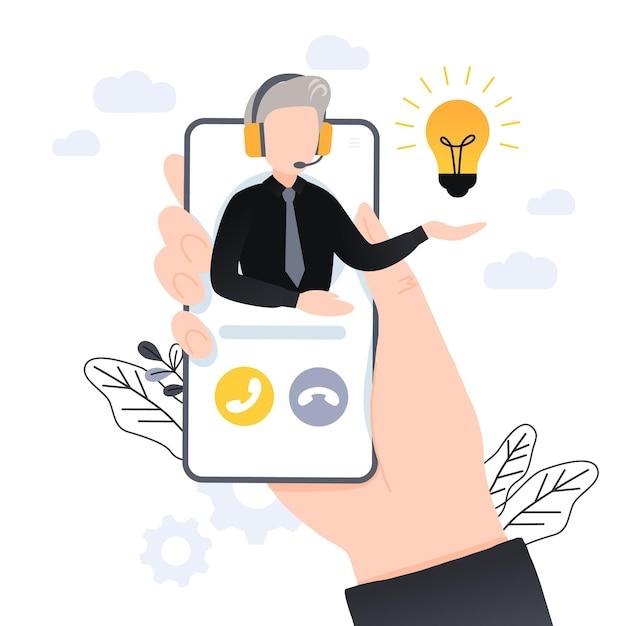Education has undergone significant transformations in the 21st century, demanding a new set of skills and qualities from teachers. In our increasingly interconnected global society, it is vital for teachers to possess the qualities that prepare students to thrive in a worldwide context. As we navigate the ever-changing landscape of education, it’s crucial to understand the role of a global teacher and the qualities they must possess to empower students in this digital age.
The 21st century teacher is not confined within the four walls of a classroom. They go beyond traditional teaching methods and embrace a diverse range of global perspectives. A global teacher is equipped with the skills and knowledge necessary to foster cross-cultural understanding, promote digital literacy, and create an inclusive learning environment. They possess adaptability, cultural competence, and a global mindset, which they use to empower students to become global citizens capable of addressing global challenges.
In this blog post, we will explore the essential qualities of a global teacher and discuss the role of teachers in the 21st century. We will also delve into the skills required in the 21st century and the difference between 20th and 21st-century learning approaches. Additionally, we will explore the influence of socialization on teaching and learning, and how it shapes the educational landscape. Join us as we delve into the fascinating world of global education and discover what it takes to be a successful teacher in the 21st century.

Qualities of an Exceptional Global Teacher
International Mindset
To be an outstanding global teacher, one must possess an international mindset that goes beyond borders. This means having a genuine curiosity about different cultures, traditions, and ways of life. An ideal global teacher embraces diversity and fosters a sense of global citizenship within their students.
Adaptability and Flexibility
The ability to adapt and be flexible is crucial for global teachers. They face diverse classrooms with students from different backgrounds, and each student has unique needs. A global teacher adjusts their teaching methods and curriculum to cater to the diverse learning styles and educational systems they encounter.
Interpersonal Communication Skills
Global teachers should excel in interpersonal communication skills. They must forge meaningful connections with students, parents, and colleagues from various cultural backgrounds. Effective communication helps create a positive classroom environment and cultivates mutual understanding among different stakeholders.
Cultural Competence
Cultural competence is essential for global teachers. It involves understanding and appreciating the values, attitudes, and beliefs of different cultures. A globally competent teacher celebrates diversity, avoids cultural biases, and integrates intercultural learning into the curriculum.
Tech Savviness
In today’s digital age, global teachers need to be tech-savvy. They should be comfortable using technology tools and digital platforms to enhance learning experiences. From virtual classrooms to online collaboration tools, tech-savvy teachers can overcome the limitations of distance and time zones.
Empathy and Patience
Being empathetic and patient are essential qualities for a global teacher. They should understand that each student comes from a unique background and may face challenges navigating a different educational system. Empathy and patience help global teachers provide the necessary support and create inclusive classrooms.
Continuous Learning
An exceptional global teacher never stops learning. They seek opportunities to enhance their knowledge of global education trends, teaching methodologies, and cultural nuances. By staying up-to-date, they can provide their students with a well-rounded and comprehensive education.
Sense of Humor
Teaching can be a challenging profession, but a global teacher knows the power of laughter. A sense of humor can break down walls, ease tension, and create a positive classroom atmosphere. Incorporating lighthearted moments into lessons fosters a joyful and engaging learning environment.
Global Citizenship Advocacy
A global teacher is not only an educator but also an advocate for global citizenship. They empower their students to be active global citizens, promoting values of social responsibility, empathy, and sustainability. By nurturing the next generation of global citizens, they contribute to a better world.
Remember, being a global teacher is an ongoing journey of growth and self-reflection. Embracing these qualities will not only make you an exceptional teacher but also positively impact the lives of your students, preparing them to thrive in an interconnected world.

FAQ: Qualities of a Global Teacher
What are the qualities of a global teacher
A global teacher possesses a unique set of qualities that enable them to thrive in a rapidly changing educational landscape. Here are some key qualities that every global teacher should possess:
-
Cultural Competence: Global teachers are culturally aware and sensitive. They have a deep understanding and respect for different cultures, beliefs, and perspectives, allowing them to connect with students from diverse backgrounds.
-
Flexibility and Adaptability: Global teachers are masters of adaptability. They embrace change, readily adjust their teaching methods, and are always open to new ideas and approaches. They understand that in the 21st century, education is constantly evolving, and they adapt their strategies to meet the needs of their students.
-
Critical Thinking Skills: Global teachers encourage critical thinking in their classrooms. They foster an environment that promotes questioning, analysis, and problem-solving. By nurturing these skills, they empower students to become independent thinkers and active learners.
-
Technology Literacy: With the rapid advancement of technology, a global teacher needs to be tech-savvy. They utilize digital tools, educational software, and online resources to enhance their teaching and engage their tech-savvy students effectively.
-
Strong Communication Skills: Global teachers excel in communication. They are effective listeners, clear speakers, and expert storytellers. They foster open lines of communication with their students, colleagues, and parents to promote a collaborative learning environment.
What is the role of a teacher in the 21st century
In the 21st century, the role of a teacher has evolved significantly. Teachers are no longer just conveyors of knowledge; they are facilitators of learning. Here’s a glimpse into the crucial role of teachers in the 21st century:
-
Facilitator of Learning: Teachers in the 21st century act as guides who facilitate the learning process. They create dynamic and interactive learning experiences where students actively explore, collaborate, and construct their knowledge.
-
Lifelong Learner: In an ever-changing world, teachers are lifelong learners themselves. They stay updated with the latest research, teaching methodologies, and technological advancements to provide their students with the best possible education.
-
Nurturer of Skills: Besides imparting subject-specific knowledge, 21st-century teachers focus on developing essential skills such as critical thinking, creativity, collaboration, communication, and digital literacy. They nurture these skills to prepare students for success in a rapidly evolving global society.
-
Motivator and Mentor: Teachers inspire and motivate their students to reach their full potential. They provide guidance, support, and mentorship to help students overcome challenges, set goals, and develop a strong sense of self.
What skills do you need for the 21st century
In the 21st century, a set of skills known as 21st-century skills has become essential for success in education and the workforce. These skills include:
-
Critical Thinking and Problem-Solving: The ability to analyze information, think critically, and solve complex problems is crucial in the 21st century. It involves evaluating evidence, applying logical reasoning, and making informed decisions.
-
Creativity and Innovation: In a rapidly changing world, creativity and innovation are invaluable. These skills involve thinking outside the box, generating new ideas, and finding novel solutions to problems.
-
Communication and Collaboration: Effective communication and collaboration are essential skills in the 21st century. They involve expressing ideas clearly and concisely, active listening, and working collaboratively with diverse teams.
-
Digital Literacy: With technology at the forefront, digital literacy is a must-have skill. It encompasses the ability to use, navigate, evaluate, and understand technology tools and digital resources effectively.
What is the difference between 20th and 21st Century Learning
The shift from 20th to 21st-century learning marks a significant transformation in the approach to education. Here are the key differences between the two:
-
Focus on Content vs. Skills: In the 20th century, education primarily focused on delivering content knowledge. In contrast, the 21st century emphasizes the development of essential skills such as critical thinking, creativity, collaboration, and digital literacy.
-
Teacher-Centered vs. Student-Centered: 20th-century learning was often teacher-centered, with the teacher as the sole authority figure. 21st-century learning promotes a student-centered approach, where the teacher acts as a facilitator and guide, encouraging active student participation.
-
Rote Memorization vs. Conceptual Understanding: 20th-century learning often relied on rote memorization of facts and information. In the 21st century, the emphasis is on conceptual understanding, helping students make connections and apply knowledge to real-life situations.
-
Isolated Classroom vs. Global Outlook: In the 20th century, classrooms were often isolated, focusing on local or national perspectives. 21st-century learning embraces a global outlook, fostering cultural competence, and preparing students for a globalized world.
How does Socialization influence teaching and learning
Socialization plays a crucial role in teaching and learning. Here’s how it influences the educational process:
-
Building Relationships: Socialization helps students build positive relationships with their peers and teachers. A supportive social environment fosters a sense of belonging and motivates students to actively engage in the learning process.
-
Collaborative Learning: Socialization encourages collaborative learning, where students work together, exchange ideas, and solve problems as a team. It promotes the development of communication, teamwork, and negotiation skills.
-
Cultural Awareness: Socialization exposes students to diverse cultures, beliefs, and perspectives. This helps them develop cultural competence, empathy, and a broader understanding of the world.
-
Enhancing Emotional Intelligence: Socialization allows students to develop emotional intelligence by understanding and managing their emotions and empathizing with others. This enables them to navigate social interactions and build strong interpersonal skills beneficial for future success.
Socialization is not just about making friends; it is an integral part of the educational experience that shapes students into well-rounded individuals.
And there you have it – a comprehensive FAQ-style subsection on the qualities of a global teacher and related topics. Being a global teacher in the 21st century requires a unique skill set, an adaptable mindset, and a commitment to lifelong learning. So, whether you’re a teacher, a student, or simply curious about modern education, now you’re better equipped to understand the role of a global teacher and the skills needed to thrive in our ever-changing world. Happy learning!
